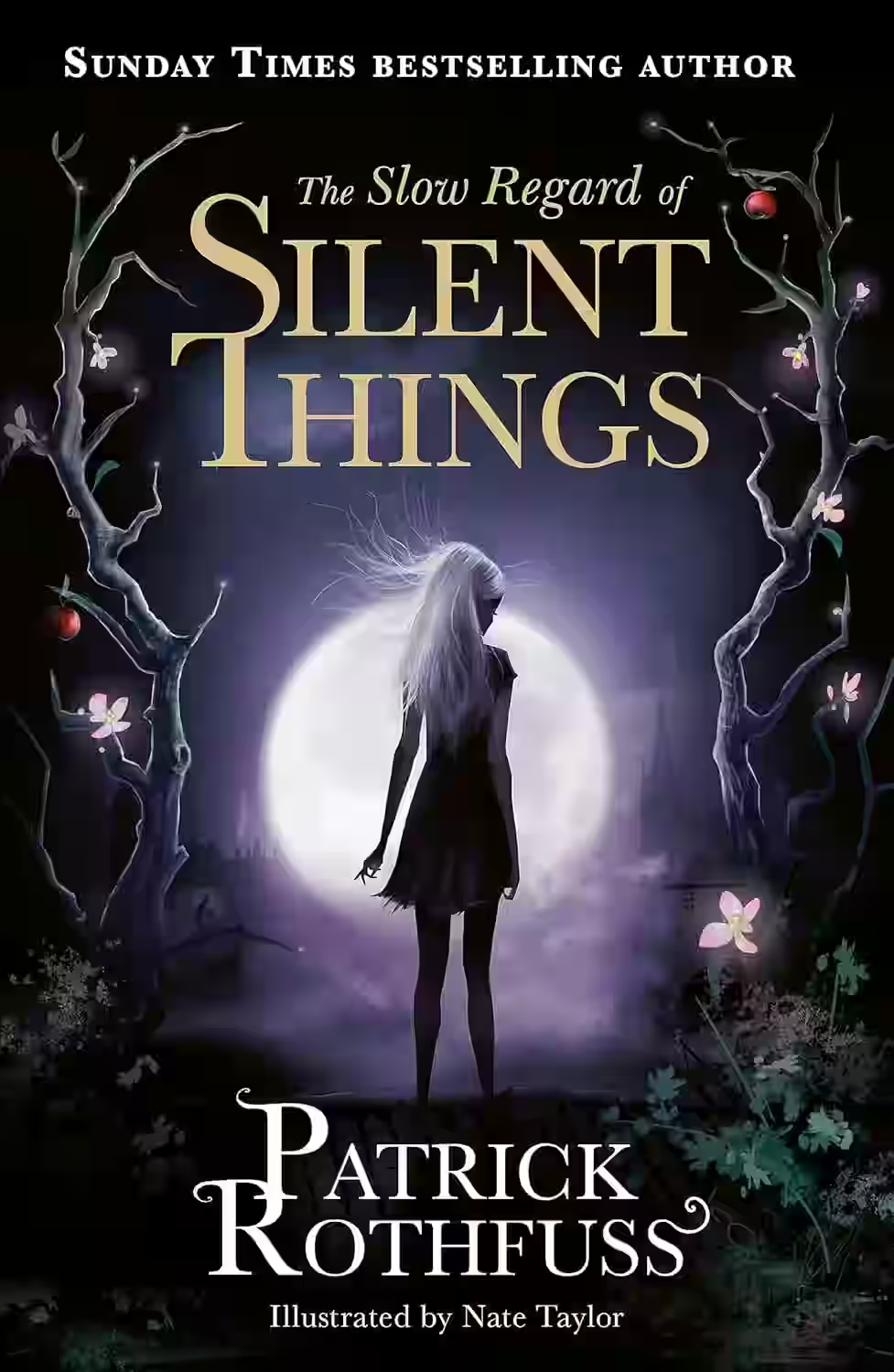
Patrick Rothfuss's "The Slow Regard of Silent Things" is a mesmerizing novella that delves into the life of Auri, a beloved character from his acclaimed Kingkiller Chronicle series. Set in the mysterious, subterranean world beneath the University, the story is a tender exploration of Auri's unique perception of the world around her. Rothfuss masterfully crafts a narrative that is less about plot and more about the lyrical journey through the existential and often solitary musings of its protagonist. Themes of loneliness, discovery, and the intrinsic beauty of small things are intricately woven, creating a meditative and ethereal reading experience. While its lack of conventional story progression might not appeal to all readers, the novella is a poignant depiction of Auri's life, offering an introspective and beautifully written diversion for fans of Rothfuss's work.
About Patrick Rothfuss
Known for his epic fantasy series, The Kingkiller Chronicle, Patrick Rothfuss has captivated readers with his richly detailed world-building, intricate magic system, and compelling protagonist, Kvothe. His lyrical prose and exploration of themes like identity, memory, and the power of storytelling have earned him critical acclaim and a dedicated fanbase eagerly awaiting the conclusion of his trilogy.
Other Books by Patrick Rothfuss

The Name of the Wind
Series: The Kingkiller Chronicle (#1)
This epic fantasy tells the tale of Kvothe, a gifted young musician who becomes the most notorious wizard his world has ever seen. Through an intricate framing device, Kvothe recounts his transformation from a traveling player to a legendary figure, weaving together magic, music, love, and tragedy in a world rich with detail and mystery.
Similar Books

Cloud Atlas
Six nested stories span from the 19th century South Pacific to a post-apocalyptic future, each tale being discovered or experienced by the main character in the next. The novel explores how lives echo through time, examining themes of power, predacity, and the connections that transcend time and space.

The Penelopiad
Margaret Atwood's "The Penelopiad" offers a fresh perspective on Homer's legendary narrative by retelling 'The Odyssey' from Penelope's viewpoint. The novella paints a vivid portrayal of Odysseus' wife, Penelope, as she waits for his return while ruling Ithaca and dealing with suitors vying for her hand. Atwood interlaces Penelope’s narrative with a chorus of her twelve maids, offering a critique of historical injustice and the silencing of female voices. Through wit and poetic prose, Atwood explores themes of power, loyalty, and the complexities of female identity. This narrative reimagining sheds light on ancient myth, gifting readers with a story that is both timeless and eerily relevant to contemporary issues of feminism and justice.

Immortal Reign
Series: Falling Kingdoms (#6)
In 'Immortal Reign,' the gripping sixth installment of Morgan Rhodes’ high-stakes Falling Kingdoms series, the future of Mytica hangs in the balance as old alliances crumble and new battles erupt. This epic conclusion weaves together the destinies of Princess Cleo, Prince Magnus, and their allies, who must navigate perilous landscapes and treacherous political waters to reclaim their kingdom from chaos. Themes of power, love, and sacrifice are explored as characters confront both external enemies and their own inner demons. Rhodes brilliantly concludes her series, delivering an adrenaline-fueled narrative brimming with tension and emotional depth. Fans of the series will appreciate the complex character development and the resolution of long-standing conflicts, making it a satisfying end to the saga.

Assassin's Apprentice
by Robin Hobb
Series: The Farseer Trilogy (#1)
In 'Assassin's Apprentice' by Robin Hobb, readers are transported to a richly detailed world filled with political intrigue, magic, and complex characters. The story follows Fitz, a royal bastard taken in by the King's assassin to be trained in the deadly arts. As Fitz navigates court politics and discovers his own innate magical abilities, he becomes embroiled in a dangerous game of power and betrayal. Hobb's intricate world-building and deep exploration of characters' emotions make this a compelling read for fantasy enthusiasts. The themes of loyalty, destiny, and sacrifice are skillfully woven throughout the narrative, leaving readers eagerly turning pages to uncover the next twist.